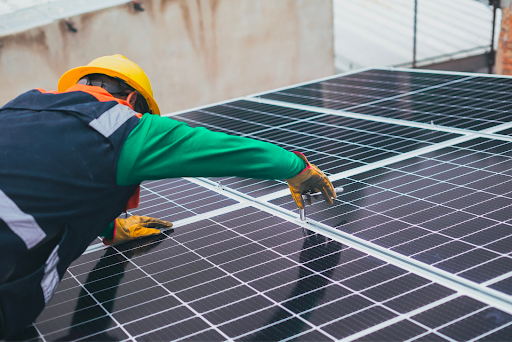The world's energy transition journey is set to accelerate further, as researchers at the University of Ottawa have devised a new smart technique to enhance the efficacy of solar panels.
According to a statement, this innovative method includes incorporating artificial ground reflectors in solar panels which will improve the system's energy production and efficiency, making such projects more economically viable.

During the study, researchers found that placing reflective surfaces under solar panels can increase their energy output by up to 4.5 percent.
"We found that highly reflective white surfaces can boost solar power output. Critically, these reflectors should be placed directly under the solar panels, not between rows, to maximize this benefitCritically, these reflectors should be placed directly under the solar panels, not between rows, to maximize this benefit," said Mandy Lewis, lead author of the study.
Unlocking solar potential in Canada
According to researchers who took part in the study, this new development is expected have massive impacts on energy creation in Canada, where snow cover persists for three-to four months of the year in major cities like Ottawa and Toronto, and 65% of the country's vast landmass experiences snow cover for over half the year.
"This research is crucial for maximizing solar energy production in geographically diverse locations. Furthermore, by generating more power per unit of land area, reflectors are ideal for densely populated areas, like city centres, where space limitations exist for solar installations," added Lewis.
Global impact in facilitating clean energy transition
The report also noted that this technique to enhance solar power production will also help to catalyse the global energy transition journey.
"This research will contribute significantly to the global transition to zero-emission power sources. These findings hold particular value for Canada and other countries that are typically cloudy, since power gains of 6 percent were observed in cloudy Seattle compared to 2.6 percent in arid Tucson," said researchers in the report.
Earlier this month, a report released by the International Energy Agency had noted that the rapid rollout of clean technologies will make energy cheaper.
According to IEA, the key task for governments globally is to make clean energy technologies more accessible to everyone.
Moreover, the report pointed out that additional investments should be made in the clean energy sector to meet the already set 2050 net zero goals.









